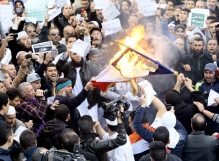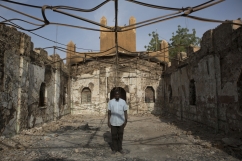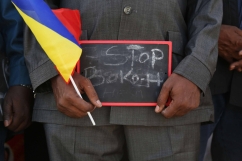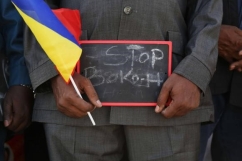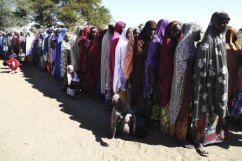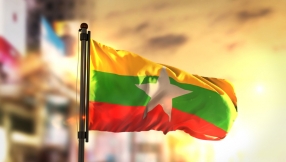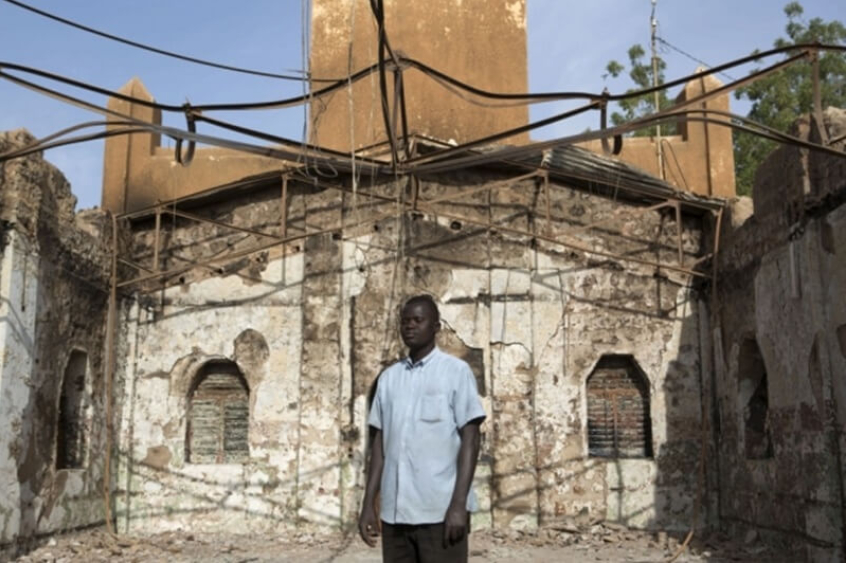
Christian leaders in Muslim-dominated Niger are crying for help as they try to rebuild their destroyed churches following a massive wave of arson attacks carried out early this year by Islamic militants.
The militants attacked and destroyed about 70 Christian churches and other properties in the said West African country from Jan. 16 to 17 this year. This was their way of expressing their anger at the attendance of African leaders, including Niger President Mahamadou Issoufou, in the anti-terror march held in Paris following the terrorist attacks in the French capital.
One of the attacks launched by the terrorists was at the office of the satirical magazine Charlie Hebdo, which had published a cover caricature of Islamic prophet Mohammad, angering Muslims. The terrorists gunned down 12 Charlie Hebdo employees in that attack.
Many of the badly damaged churches and properties in Niger have yet to be rebuilt and the financial support promised by the government has not arrived yet.
"Since these incidents, it is as if life had stopped," said Rev. Jacques Kangindé, who heads the Baptist "Roundabout" Protestant church in the capital of Niamey. "The church has become a source of curiosity for passers-by and a hide-out for idlers. Unfortunately our current church finances don't allow us to begin the reconstruction."
The church, built in 1929, is still waiting for the state's financial aid before reconstruction could begin. Meantime, Sunday services and other activities are being held in a tent in the church's courtyard.
"We feel that, as the emotion of the first days has now passed, our case is no longer of interest to our political leaders," Kangindé said.
"They seem more concerned with preparations for the elections [due in 2016] and the fight against Boko Haram. The churches are abandoned to their fate."
The two-day assault destroyed 70 churches as well as Christian schools, organisations, and an orphanage. Islamists also looted and razed at least 30 Christian homes.
The attacks, which claimed the lives of 10 people, seemed well-planned.
"How can one make sense of the fact that, in under two hours, more than 40 churches were destroyed across the capital?" asked a spokesperson for aid agency Caritas on French radio.
The Niger government announced three days of mourning for those who were killed, the BBC wrote.
The Islamist assaults not only revealed the lack of fire fighters in the country who should have responded to the arson attacks but also the inability of security forces to protect Christians and their properties.
Rev. Zakaria Jadi of the Salama church in the capital's northern district of Bani Fandou 2, said their resources have already ran out.
"It is a blow to our church. For nearly a month, there was neither water nor electricity. We have done our best to allow our worship activities to restart, but we have now reached our limit. The reconstruction work may probably take some time," said the pastor.
The victims also need psychological support, said US NGO Samaritan's Purse. From the organisation's small sample of 40 respondents, 32 are suffering from severe trauma while the remaining have moderate trauma.
Jadi, who not only lost his church but also his house, said it is not easy to endure the pain, but he said he has forgiven the attackers and wants to move on.
"I felt very bad, such an indescribable feeling when I saw my ripped-up Bible on the ground. For a pastor, it was like my entire life was torn apart. I could not stop shedding tears," he said.
"It was truly hurting, but I was well supported by brothers and sisters who have encouraged me a lot. And I received my greatest encouragement from God. He has really strengthened me in order to overcome that ordeal. And He also allowed me to support those who were in tears."










